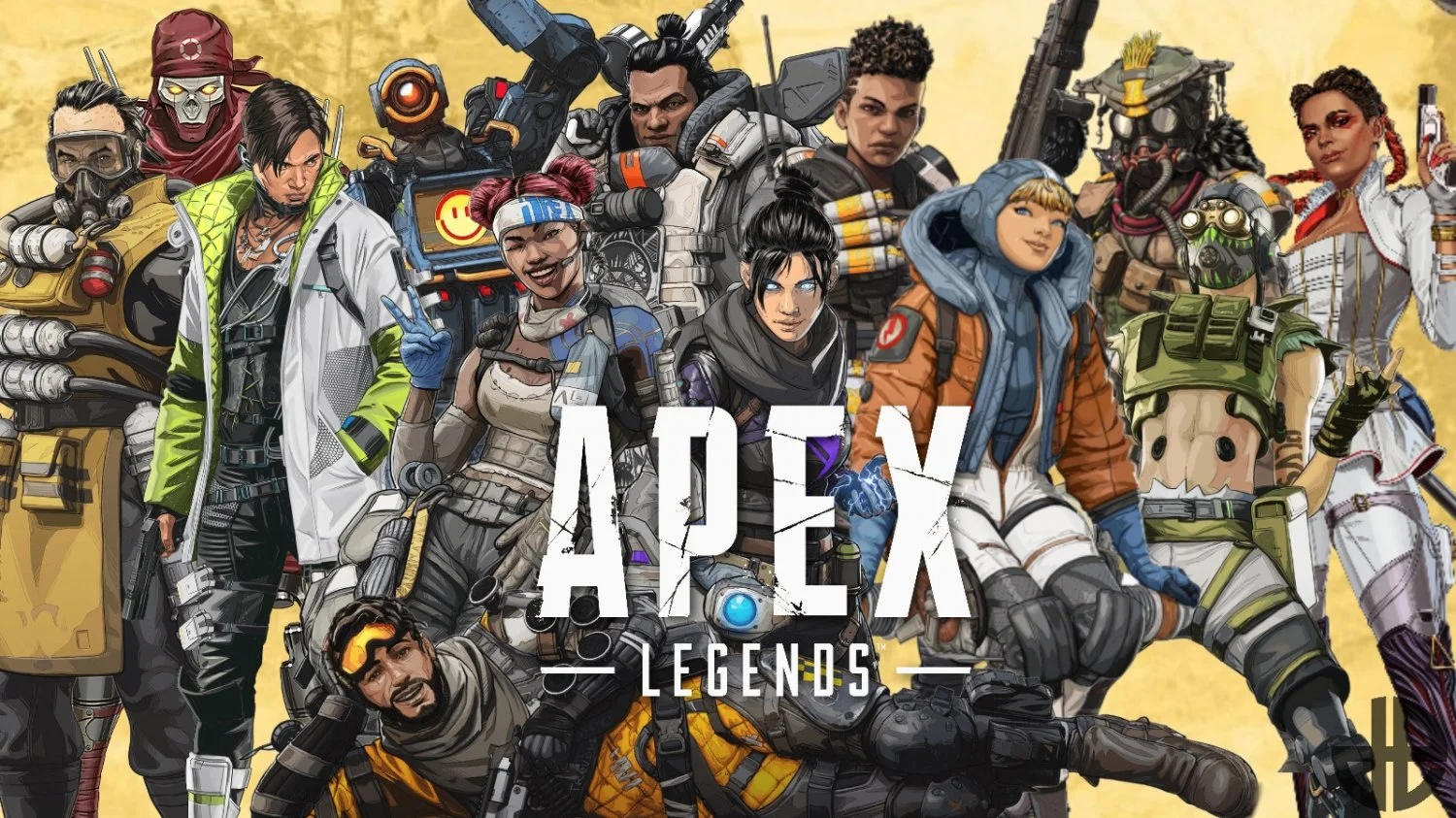You're searching for teammates online. Within minutes, you've shared your Discord, game username, maybe your time zone, and possibly even your approximate location. But do you know what happens to that data? Who can see it? How long it's stored? Whether it's being sold to advertisers?
Privacy in gaming isn't just about preventing hackers – it's about controlling what strangers learn about you, protecting yourself from harassment, and maintaining boundaries between your gaming life and personal identity. As matchmaking platforms become essential for finding teammates, understanding how they handle your data becomes critical.
Introduction
The gaming privacy landscape has evolved dramatically over the past decade. What started as simple forum posts with email addresses has transformed into sophisticated platforms managing millions of user profiles with complex privacy considerations.
Modern matchmaking platforms face a unique challenge: they need enough information to make good teammate matches while protecting users from data breaches, identity exposure, doxxing attempts, and targeted harassment. The balance between functionality and privacy determines whether a platform is safe to use or a privacy nightmare waiting to happen.
In this guide, we'll explore how responsible matchmaking platforms protect your data, examine the privacy risks inherent in teammate discovery, and reveal the specific features that separate privacy-conscious platforms from those treating your information carelessly. While finding compatible teammates can be challenging, platforms like Jynx are making it easier with privacy-first design that lets you control exactly what you share and when.
The Privacy Risks of Traditional LFG Methods
Before examining solutions, let's understand the privacy problems with conventional teammate-finding approaches.
Discord Server Exposure
The most common LFG method – posting in Discord servers – creates significant privacy risks:
Username Linkage:
- Discord username visible to thousands
- Cross-reference with other servers
- Search engines index public server messages
- Permanent digital footprint
Server Member Lists:
- Anyone can see your server memberships
- Reveals gaming interests and communities
- Indicates activity patterns and time zones
- Exposes mutual connections
Direct Message Vulnerability:
- Anyone in shared servers can DM you
- No effective blocking without leaving servers
- Friend request spam from strangers
- Potential for harassment campaigns
Reddit and Forum Posts
Public forum posts create permanent privacy exposure:
Search Engine Permanence:
- Google indexes LFG posts indefinitely
- Future employers/partners can find them
- Associates your username with personal details
- Difficult or impossible to fully delete
Profile History:
- Post history reveals personal information
- Comment patterns show interests and opinions
- Activity times indicate geographic location
- Connection to other accounts through patterns
Contact Information Exposure:
- Must share Discord/game username publicly
- Email addresses sometimes shared
- Social media links for "verification"
- No control over who contacts you
In-Game Username Problems
Your game username itself can be a privacy liability:
Cross-Platform Tracking:
- Same username across games = linked identity
- Third-party tracking sites aggregate stats
- Performance history publicly viewable
- Associates all gaming activity together
Real Name Usage:
- Many players use real names as usernames
- Easy to connect to social media profiles
- Searchable in people-finding databases
- No separation of gaming and personal identity
This is exactly why privacy-first matchmaking is revolutionizing how gamers connect – it takes all these exposure risks into account automatically, letting you find teammates without broadcasting your identity to the world.
Core Privacy Protection Mechanisms
Responsible platforms implement multiple layers of privacy protection.
Anonymized Handle Systems
The most effective privacy protection starts with identity separation:
Username + Discriminator Format: Similar to Discord's system, platforms use "username#1234" formats:
- Username can be non-unique
- Discriminator creates uniqueness
- No real name required
- Easy to change without losing connections
Benefits:
- Multiple people can use "Alex" or "Mike"
- No pressure to use real names
- Change display name without breaking friend lists
- Harder to cross-reference with other platforms
Jynx Implementation: Uses a privacy-focused handle system where:
- Your handle is private by default
- You control who can see your full username
- No requirement to link external accounts
- Change handles without losing matches
Controlled Information Disclosure
Privacy-conscious platforms implement progressive disclosure:
Tier 1 – Public Profile:
- Basic gaming interests (genres, games)
- Approximate skill level (rank tier, not specific)
- General availability (evenings, weekends)
- No personally identifiable information
Tier 2 – After Match:
- More specific rank information
- Preferred playstyles
- Language preferences
- Still no personal details
Tier 3 – After Acceptance:
- Communication platform username
- Specific availability schedule
- Voice chat preferences
- Direct messaging access
Tier 4 – Voluntary Sharing:
- Social media (only if user chooses)
- External profiles (opt-in only)
- Personal contact info (user discretion)
This staged approach means you're not exposing everything to everyone immediately.
Data Minimization Principles
Privacy-first platforms collect only essential data:
What's Necessary:
- Game preferences and skill levels
- Playstyle compatibility factors
- Communication preferences
- Basic account security information
What's Not Necessary:
- Real names
- Precise locations (beyond time zone)
- Phone numbers
- Email (can use anonymous options)
- Social security numbers or government IDs
- Payment information (unless purchasing)
Why It Matters:
- Less data collected = less data to breach
- Reduces platform liability
- Minimizes surveillance capitalism
- Respects user autonomy
Encryption and Security Standards
Technical protections ensure data safety:
Transport Layer Security:
- HTTPS for all connections
- TLS 1.3 encryption minimum
- Certificate pinning to prevent interception
- Secure WebSocket connections for real-time features
Data at Rest:
- Database encryption
- Hashed passwords (never plain text)
- Tokenized payment information
- Encrypted backups
Access Controls:
- Role-based access for staff
- Audit logs for data access
- Multi-factor authentication options
- Regular security audits
Platform-Specific Privacy Features
Beyond core protections, advanced platforms offer granular privacy controls.
Visibility Settings
Control who sees what about you:
Profile Visibility Options:
- Public: Anyone browsing can see
- Community Members: Only shared communities
- Matches Only: Only people you've matched with
- Private: Invisible in searches
Activity Status:
- Show/hide online status
- Show/hide current game
- Show/hide last active time
- Appear offline while browsing
Search Inclusion:
- Opt out of discovery algorithms
- Prevent appearing in random recommendations
- Block specific users from seeing profile
- Age-restricted visibility
Communication Controls
Managing who can contact you:
Message Filtering:
- Friends only
- Matches only
- Anyone (with optional keyword filters)
- Nobody (completely private)
Block and Report:
- Immediate blocking (invisible to blocker)
- Report for harassment
- Automated pattern detection for problematic users
- Privacy-preserving report systems (anonymous to reporter)
Voice Chat Safety:
- Optional voice distortion
- Push-to-talk enforcement options
- Recording consent requirements
- Easy mute/block during sessions
Ready to find your perfect gaming squad? Jynx's privacy controls let you decide exactly what you share and when, protecting your identity while connecting you with compatible teammates who respect your boundaries.
Gaming-Specific Privacy Challenges
Gaming platforms face unique privacy considerations beyond typical social apps.
Skill Verification Without Exposure
Platforms need to verify your rank without exposing sensitive data:
The Dilemma:
- Must confirm you're actually Diamond rank
- Can't allow fake ranks (ruins matching)
- Integration requires account linking
- Linking creates cross-platform tracking
Privacy-Preserving Solutions:
1. One-Time Verification:
- Link account temporarily
- Verify rank
- Immediately unlink
- Store only verified rank tier
2. API Token Method:
- Use official game APIs
- Request minimal permissions
- Token expiration after verification
- No permanent integration
3. Screenshot + Metadata:
- Upload recent screenshot
- Automated validation
- Manual review for edge cases
- Delete image after verification
Jynx Approach: Integrates with Riot API for League and Valorant:
- Verification is optional (not mandatory)
- Uses temporary read-only access
- Stores rank tier, not full account details
- Can re-verify or disconnect anytime
Voice Chat Privacy
Voice communication introduces unique risks:
Identity Exposure:
- Voice reveals gender, age, accent
- Background noise indicates location
- Speech patterns unique as fingerprints
- Recordings can be shared/misused
Harassment Vectors:
- Voice-based harassment harder to prove
- Real-time abuse (no review possible)
- Swatting and doxxing risks
- Targeted campaigns against recognizable voices
Protection Measures:
- No mandatory voice chat
- Text-only communication options
- Recording notification requirements
- Quick mute/block functions
- Post-session blocking (prevents future matches)
Time Zone and Location Data
Matching requires some location data, but how much?
What's Actually Needed:
- Time zone (for scheduling)
- Server region (for connection quality)
- Language/region for communication
What's Not Needed:
- Precise GPS coordinates
- Street address
- City-level precision
- IP address tracking
Privacy-Preserving Implementation:
- User selects time zone manually (not auto-detected)
- Server region chosen by user
- No IP geolocation
- No location history tracking
Red Flags: When a Platform Isn't Privacy-Conscious
Not all matchmaking platforms prioritize user privacy. Here's how to identify problematic ones:
Data Collection Red Flags
Excessive Requirements:
- Mandatory real name
- Phone number for "verification"
- Social media account linking required
- Government ID requests
- Email address visible to other users
Suspicious Permissions:
- Access to contacts
- Location tracking always-on
- Microphone access when not in voice chat
- Screen recording permissions
- File system access
Poor Security Indicators
Warning Signs:
- No HTTPS (unencrypted connection)
- Password visible when typing
- No two-factor authentication option
- Passwords sent via email
- Data breach history with poor response
Monetization Through Data
Business Model Concerns:
- "Free" with extensive tracking
- Third-party advertising integrations
- Data sharing with "partners" in terms of service
- Selling anonymized (but identifiable) data
- No clear revenue model (if not selling data, how do they sustain?)
Missing Privacy Controls
Lack of User Control:
- Can't delete account
- Can't export your data
- No visibility settings
- Can't block users
- No privacy policy (or incomprehensible one)
If a platform shows multiple red flags, your data isn't safe.
Best Practices for Personal Privacy Protection
Platform features only go so far – you need personal privacy hygiene:
Creating Safe Gaming Identities
Unique Usernames:
- Don't reuse usernames across platforms
- Avoid names linked to real identity
- Consider separate gaming persona
- Use password manager to track variations
Separate Email Addresses:
- Gaming-only email address
- No real name in email
- Different from work/personal email
- Disposable for untrusted platforms
Communication Platform Separation:
- Gaming Discord vs personal Discord
- Separate social media if sharing
- Different phone number for gaming if possible
Information Sharing Guidelines
What to share and when:
First Contact (Match):
- Gaming preferences only
- General skill level
- Broad availability
After Several Sessions:
- Communication platform username
- Specific schedule
- Playstyle details
Only With Trust:
- Age (if asked)
- General location
- Personal social media
Never Share:
- Full name (unless truly comfortable)
- Home address
- Phone number (use Discord instead)
- Financial information
- Work/school details
Managing Your Digital Footprint
Regular Audits:
- Search your gaming username quarterly
- Check what information is publicly findable
- Delete old forum posts if possible
- Update outdated profiles
Account Cleanup:
- Delete unused gaming accounts
- Remove permissions from unused apps
- Clear old LFG posts
- Unlink accounts you no longer use
The Future of Gaming Privacy
Privacy expectations and technologies continue evolving.
Emerging Privacy Technologies
Decentralized Identity:
- Self-sovereign identity systems
- You control your data completely
- Share credentials without centralized storage
- Revoke access anytime
Zero-Knowledge Proofs:
- Prove your rank without revealing account
- Verify identity without exposing data
- Cryptographic privacy guarantees
Privacy-Preserving Matchmaking:
- Federated learning for preferences
- Encrypted multi-party computation
- Match without central server knowing details
Regulatory Changes
GDPR and Beyond:
- Right to deletion
- Right to data portability
- Consent requirements
- Breach notification obligations
Gaming-Specific Regulations:
- Child privacy protections (COPPA)
- Loot box regulations
- Data residency requirements
- Platform liability for user safety
These changes push platforms toward privacy-by-default designs.
Conclusion
Privacy in gaming matchmaking isn't optional – it's essential. The platforms you use to find teammates should protect your identity, give you control over your information, and implement security measures that prevent data breaches and harassment.
Understanding privacy protections helps you make informed choices about which platforms to trust with your data. Look for anonymized handle systems, controlled information disclosure, data minimization, and granular privacy controls. Avoid platforms with excessive data collection, poor security, and lack of user control.
The future of teammate discovery lies in privacy-first design where you maintain complete control over your identity while still finding compatible gaming partners. Traditional LFG methods force you to choose between privacy and functionality – modern platforms should provide both.
Download Jynx today and experience privacy-first matchmaking that protects your identity while connecting you with compatible teammates through verified ranks, controlled disclosure, and a handle system that keeps your personal information private until you choose to share it.
Frequently Asked Questions
Q: Is it safe to link my game accounts to matchmaking platforms? A: It depends on the platform's implementation. Safe platforms use temporary, read-only access through official APIs, store only essential information (rank tier), and allow you to disconnect anytime. Avoid platforms requiring permanent account linking, requesting extensive permissions, or storing login credentials.
Q: How can I tell if a gaming platform is selling my data? A: Read the privacy policy's "data sharing" section. Red flags include: "sharing with partners," "anonymized data sales," extensive third-party integrations, and targeted advertising. Privacy-conscious platforms explicitly state they don't sell user data and have minimal third-party relationships.
Q: Should I use my real name on gaming matchmaking platforms? A: No, unless you're specifically building a professional gaming brand. Privacy-first platforms don't require real names and use handle systems (username#discriminator) instead. This separates your gaming identity from your real-world identity, reducing doxxing and harassment risks.
Q: What should I do if someone found my personal information through a gaming platform? A: Immediately: (1) Block the person on all platforms, (2) Report to platform support with evidence, (3) Change your usernames and handles, (4) Review what information you shared and where, (5) Consider creating new gaming accounts if harassment continues. Document everything for potential legal action if needed.
Q: Are voice chat conversations recorded on matchmaking platforms? A: Policies vary by platform. Responsible platforms either: (1) Don't record at all, (2) Record only with clear notification and consent, or (3) Record temporarily for moderation purposes with automatic deletion. Check the platform's privacy policy for specifics, and never share sensitive information over voice chat with strangers.



